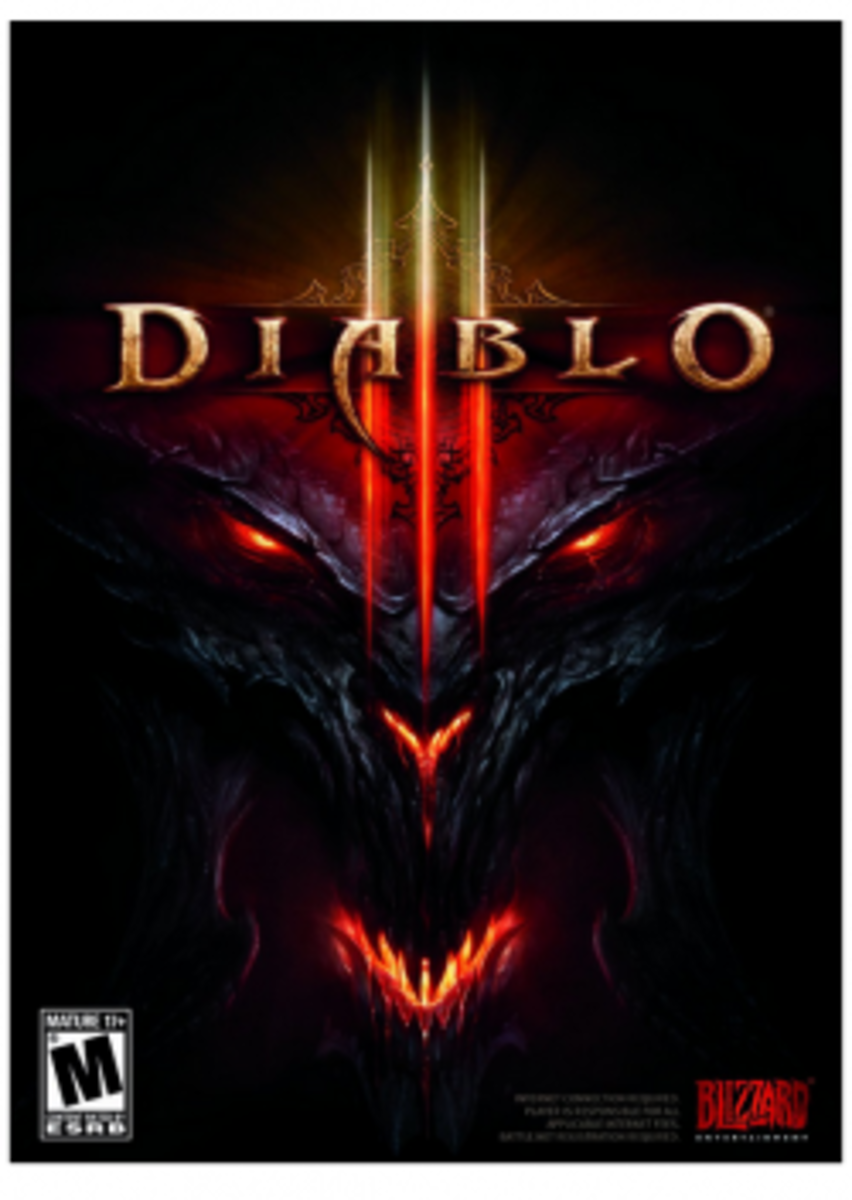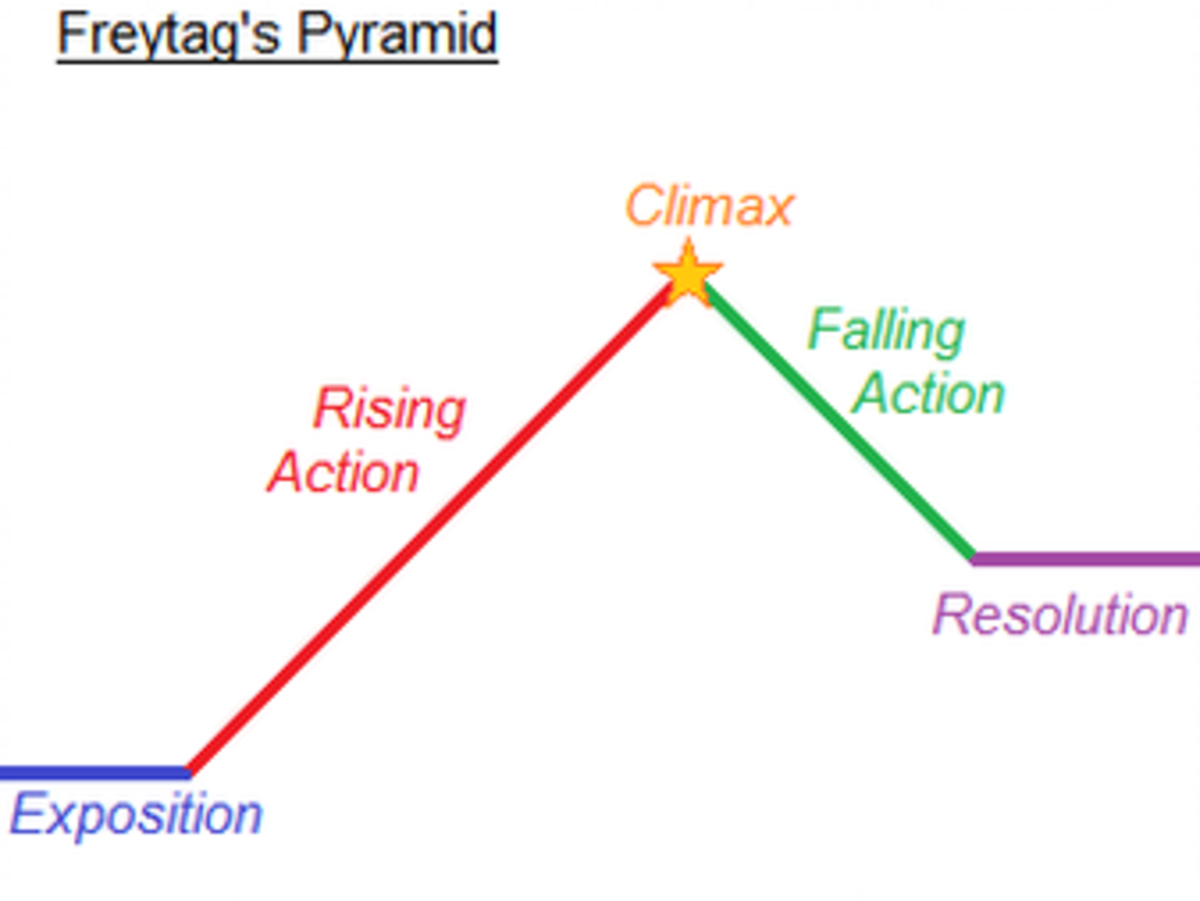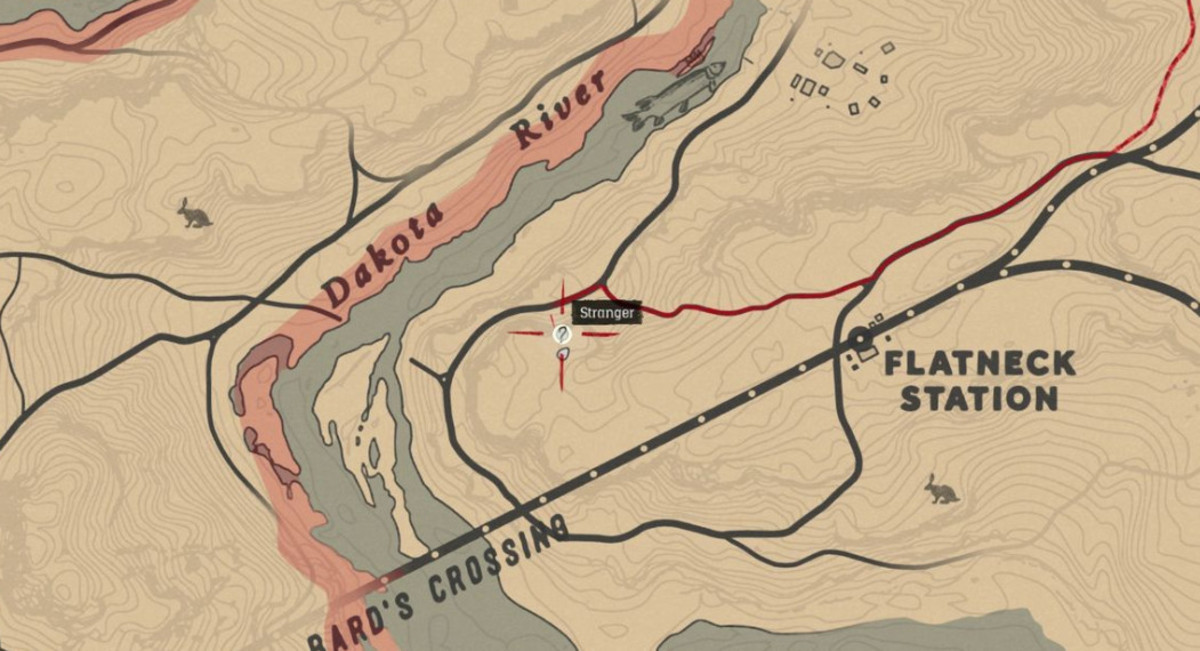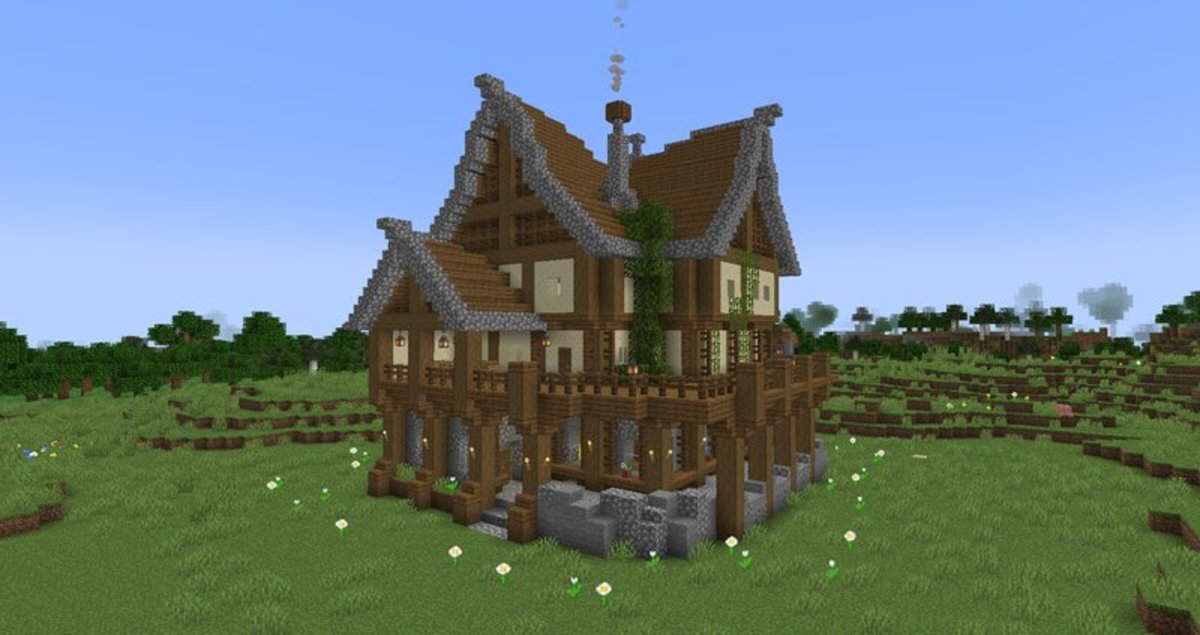5 Reasons to Play Path of Exile Over Diablo 3
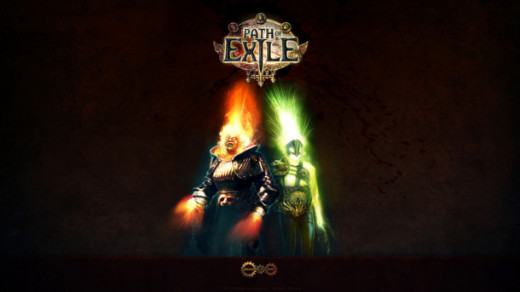
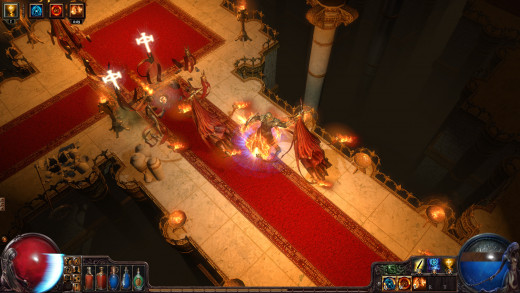
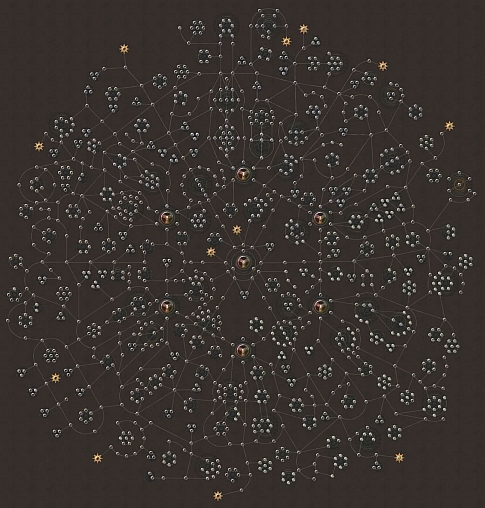
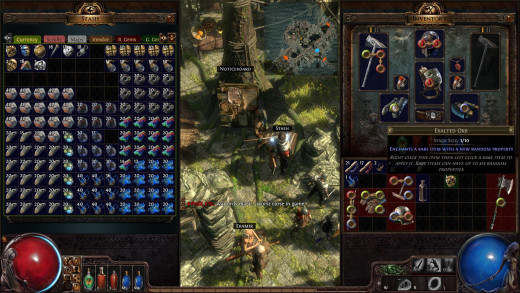
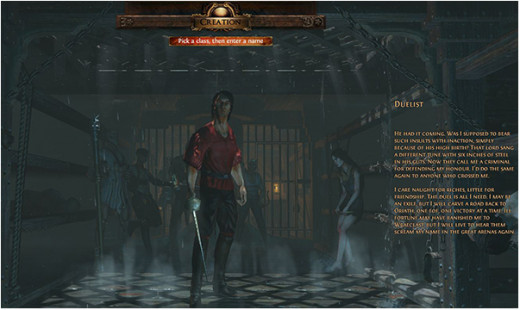
Diablo 2 was and still is regarded by many to be the epitome of the action RPG genre. Players would spend hundreds, maybe thousands of hours running through the game's content in an effort to maximize their character's power by obtaining better gear and higher levels. With the announcement of Diablo 3, the fans rejoiced. Finally, after all these years, the franchise they enjoyed so immensely would evolve to meet the standards of modern technology. However, as screenshots were revealed, there was instant backlash. Fans of the dark and gritty atmosphere the first two games were revolted by the brighter, more colorful tone used in this latest iteration. An understandable frustration, sure, but graphics don't make the game. Unfortunately, the mechanics of D3 also leave a lot to be desired. Fortunately for these disgruntled fans, there exist alternatives.
Grinding Gear Games, an independent development team based in Sweden, have developed an online action RPG game all their own called Path of Exile, and it delivers in spades where Blizzard's latest installment fails. Following are five reasons why Path of Exile should be the definitive choice for any serious fan of the genre.
1. Path of Exile is Completely Free to Play
Everybody likes saving money, so PoE has an obvious advantage over D3 in that is it completely free to enjoy, while the latter costs 60 dollars. Admittedly, the phrase "free to play" carries with it negative connotations, especially in the realm of online gaming. The majority of free online games feature a cash shop wherein players can instantly gear up their character with top of the line weapons and armor, granting them an immediate advantage over players who are either unwilling or unable to spend real-world money on virtual goods.
This is a not a concern in PoE though, as players cannot directly purchase top of the line gear with real money. Granted, they can still purchase items directly from other players via a number of auction sites, but these don't have nearly as devastating of an impact on the game's economy, especially compared to D3's built-in real money auction house. GGG still needs the game to be profitable though, so they offer ethical micro-transactions, including glowing weapon effects, skins, extra item storage space, and pets that serve no function other than to look cute. By offering perks that don't directly affect a character's strength, GGG are able to keep the game running without creating an unstable economy unfit for non-paying players.
2. Path of Exile Features In-Depth Character Customization
Perhaps the most crippling flaw in Diablo 3 is how shallow and repetitive the gameplay feels after a few runs through. In its predecessor, players were able to choose their own path along the skill tree, creating a unique gameplay experience tailored to their tastes. In the latest edition, skills are unlocked in a linear fashion as the character levels up. There are a handful of skills for each class, each with a number of "runes" or variations to be selected from. This system offers some customization, but quickly grows stale as there is a lack of synergy between them, and certain skills are significantly better than others, making them the obvious choice. This leads to a homogenization of builds and begs the question: "What's the point?" In online games such as these, players grow attached to their characters and enjoy expressing themselves with their own unique builds, but when everyone is virtually identical, that feeling is lost.
Path of Exile, on the other hand, features extraordinarily in-depth character customization. For starters, it has an enormous passive skill tree. With its many intersections, twists, and turns, players can branch out in any direction they desire. Witch, Shadow, Ranger, Deulist, Marauder, and Templar make up the game's current class list, with the only difference between them being their starting stats and location on the skill tree. Witches, for example, are designed to rely almost exclusively on the intelligence stat, so their area of the tree is full or nodes that increase INT and improve skills that rely on this stat. Rangers are purely DEXterity, and Marauders purely STRength, with the Shadow, Deulist, and Templar each being a hybrid of two stats. However, there is nothing to stop a player from starting as a Witch then making their way over to the Marauder's side of the tree to become proficient with two handed melee weapons instead of being a traditional magic user.
The customization goes even further with active skills, which are present in the form of gems, which are socketed into weapons and armor. While wearing a piece of armor with a gem in it, the player gains access to that skill, and can level it up by defeating mobs of monsters. Items can have anywhere from four to six sockets, which can be linked together. Instead of granting the player a new ability, support gems serve to improve existing abilities. For example, the Double Strike skill gem will hit an enemy twice with the character's main hand weapon. If it is linked with a socket containing the support gem called Blind, then Double Strike will have a chance to blind the enemy on hit. With dozens of skill gems and a maximum of six links in a single piece of gear, players are able to create a truly unique character.
3. There is No Gold in Path of Exile
People play this genre of game primarily to kill increasingly difficult monsters for loot which will improve their character, allowing them to kill even stronger monsters. As such, an economy forms, with players buying, selling, and trading the items they don't need for the ones they do. Gold, like real-world money, serves to facilitate these transactions, and its initial worth is generally determined by the cost of potions or other gear sold by the game's Non Playable Characters, with players deriving the value of everything else from there. However, when a particular item is deemed to be worth, say, a billion gold, it's hard to know where that value comes from.
In Path of Exile, there is no gold. Instead, the economy functions on a barter system. There are various "currencies" to be found in the world of Wraeclast, each with a practical use. An Alteration Orb, for example, is used to reforge a magic tier item with new, random properties. Chaos Orbs do the same for rare items, and are valued at around eighteen Alterations. Exalted orbs are one of the most valuable currencies, adding a new random property to rare items, and are worth approximately forty Chaos Orbs. There are over a dozen different currencies throughout the game. The exchange rates are determined by the players and are therefore constantly fluctuating. Unlike gold in Diablo 3, these currencies are inherently valuable based on drop rates and function in crafting items. For these reasons, the economy is protected to a greater degree against inflation, particularly from automated bots that do nothing but collect gold all day. Sure, there are bots in PoE, temporarily increasing the amount of currency in circulation, but these currency items are constantly being used for crafting, which serves to mitigate the influx from bots. Diablo 3 is flooded with bots, and the value of gold has plummeted as a result.
4. Path of Exile offers Diverse Gameplay Experiences in the Form of Leagues
The Standard league in Path of Exile can be played regularly, or on Hardcore. In Diablo 3, when a Hardcore character is killed, it is permanently deleted. In PoE however, it is instead moved to the standard or "softcore" difficulty. This serves to lessen the sense of loss the player experiences after a death, and may keep them playing the game instead of quitting out of frustration. In addition to Hardcore mode, the developers have been known to set up temporary leagues to keep the game interesting. Currently, the Anarchy and Onslaught leagues are underway, and will end four months from their opening. In Anarchy, players will encounter rogue exiles throughout Wraeclast. These challenging computer-controlled characters behave as a player would, and drop a sizable pile of loot if defeated. In the Onslaught League, all monsters are granted increased attack and move speed, creating a truly challenging experience for those looking for an even greater challenge.
The downside of having multiple leagues is that players in one aren't able to play with those in hardcore. In Race Events however, players are given anywhere from an hour to a week to create a character from scratch and gain as man levels as possible. These exist separate from leagues, giving players a chance to interact with the rest of the community.
5. The Path of Exile Developers Listen to Player Feedback
The developers at Grinding Gear Games aren't just developers; they're also gamers. They have an intense love for the game they're making, and are always looking for ways to make it a better experience for the player. It could be argued that Blizzard also listens to feedback for Diablo, but it's often indirectly and to a lesser extent. Maybe they're more focused on making money or maybe D3's player-base is just too large to effectively listen to everybody. Whatever the case, players can rest assured that their opinions on PoE will, at the very least, be heard. The lead developers often comment in forum threads and on the PoE reddit community, letting players know their concerns have been heard. This close relationship between player and developer means that any bugs that arise will immediately be fixed, but it extends beyond that as well. Many players had expressed frustration with the ten and fifteen percent experience penalties upon death in the cruel and merciless difficulties, and they've recently been lowered to seven and ten percent, respectively. A company willing to take criticism is a company that cares about its product and consumer.
Conclusion
Diablo 3 isn't a terrible game by any means, and it certainly is an enjoyable experience, at least on the first run though. It's rich narrative and theatrical cut-scenes are a treat, but there's no denying the sheer number of disappointed fans that grew tired and eventually quit the game, citing shallow gameplay as one of their main gripes. Those looking to foray into the action RPG genre of gaming are urged to consider alternatives before putting their money down on something they may quickly lose interest in, and Path of Exile is certainly a very viable alternative.
Do You Play Path of Exile or Diablo 3?
© 2013 K1ngN0thing

